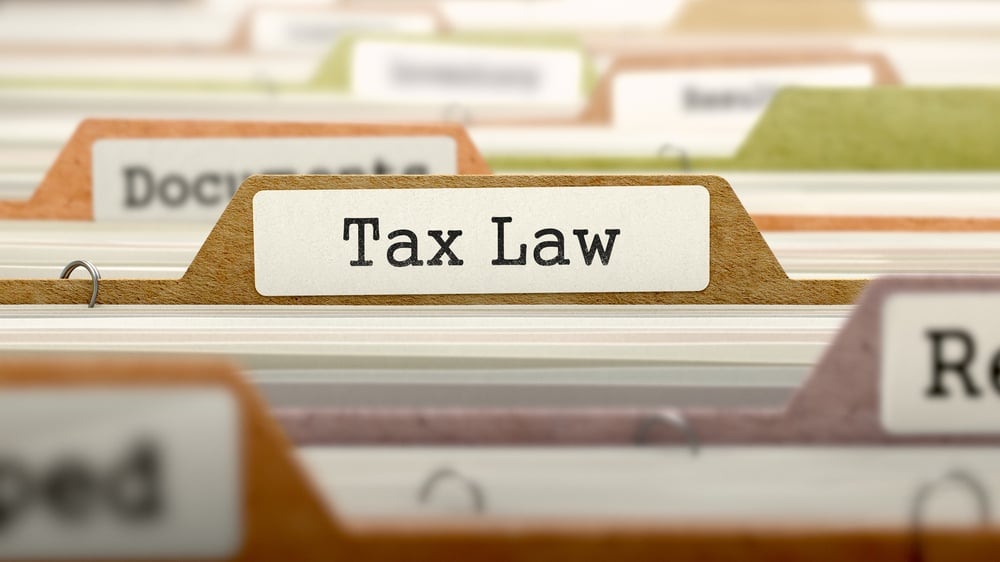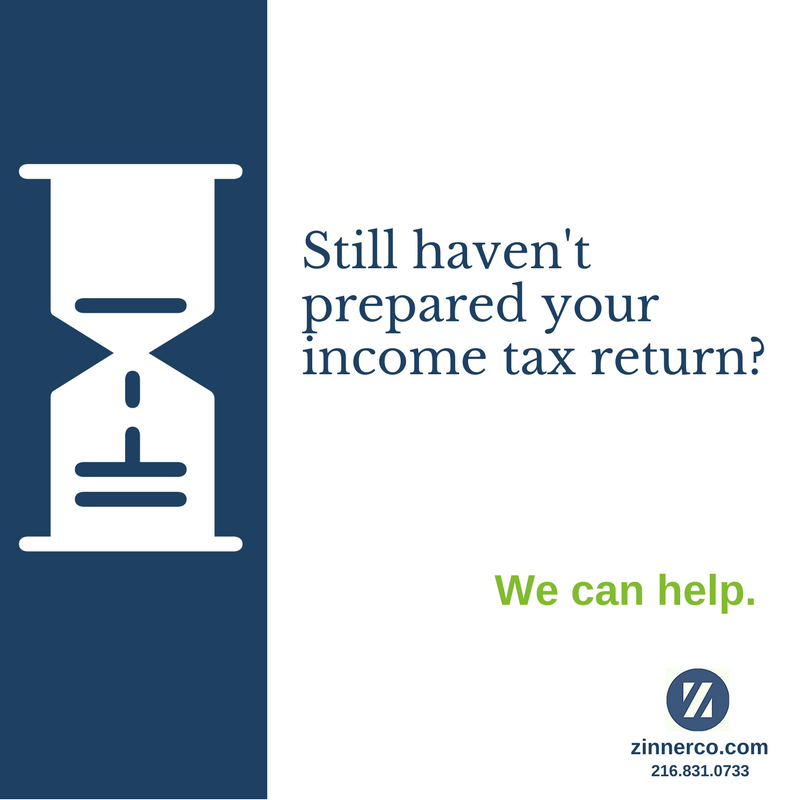For many parents, the idea of getting their kids ready for back-to-school conjures up both a welcome relief and a financial frenzy. According to NEAToday.org, in 2016, parents spent $200, on average, per elementary student and $330 and $375 per middle and high school student, respectively. That is a lot of paper and pencils!
Domestic Bliss: What You Need to Know Before You Convert Your Primary Residence to a Rental
Richard Huszai, CPA investments , Taxes - Individual , Richard Huszai, CPAFor many, being in the position to either sell your primary residence or rent the property is a powerful one. Rental income can be a great additional source of income and the investment, if managed properly against the rest of one’s financial portfolio, can contribute to a nice tax shelter.
7 Mid-year Tax Tips Everyone Should Consider
Zinner & Co. Tax Department Taxes - Planning, Rules and Returns , Taxes - IndividualThinking about income taxes should not just be an end-of-year or pre-April-15-panic occurrence. The well-informed taxpayer will think about these seven mid-year tax tips that could help save on his next income tax filing, as well as yours.
Do You Have an HSA? What you need to know about the 2018 limits
Zinner & Co. HSA , Taxes - Planning, Rules and Returns , Taxes - IndividualThe 2018 health savings account (HSA) guidelines were recently released by the Internal Revenue Service (IRS). These guidelines outline the inflation-adjusted contribution, deductible, and out-of-pocket spending limits for Health Savings Accounts (HSAs) and high-deductible health plans (HDHPs) for calendar year 2018.
Oops. What you need to know if you discover an error after you have filed your income tax return.
Zinner & Co. Tax Department Taxes - Individual , IRS , Matt SzydlowskiIf you discover an error after filing your return, you may need to amend your return. The IRS may correct mathematical or clerical errors on a return and may accept returns without certain required forms or schedules.
In these instances, there's no need to amend your return. However, do file an amended return if there's a change in your filing status, income, deductions, or credits. Use Form 1040X (PDF), Amended U.S. Individual Income Tax Return, to correct a previously filed Form 1040 (PDF), Form 1040A (PDF), Form 1040EZ (PDF), Form 1040NR (PDF), Form 1040NR-EZ (PDF), or to change amounts previously adjusted by the IRS.
You can also use Form 1040X to make a claim for a carryback due to a loss or unused credit; however, you may also be able to use Form 1045 (PDF), Application for Tentative Refund, instead of Form 1040X. Also, if the Form 8938 (PDF), Statement of Specified Foreign Financial Assets, applies to you, file it with an annual return or an amended return. See the Form 8938 Instructions for more information.
Learn more about income tax planning from the Zinner & Co. tax team
Pay Me Now, Pay Me Later: Should you pay quarterly estimates or utilize tax withholdings?
Zinner & Co. Taxes - Individual , income tax , IRS , Matt SzydlowskiMany clients ask if it is more advantageous to pay quarterly tax estimates or utilize their tax withholding. I wish there were a simple, cookie-cutter answer. However, as no two taxpayers are alike, the same goes for the manner in which one can pay one’s taxes.
Both methods of paying income tax have their pros and cons. The best selection depends on your personal preference and, more so, financial situation. A majority of self-employed individuals must utilize quarterly payments. However, if you have an income source such as retirement distributions, social security or employee wages, you have the option of withholding tax from those income streams in lieu of paying quarterly.
I Just Received a Huge Tax Refund! Why this may not be a good thing to brag about…
Zinner & Co. Tax Department Taxes - Individual , income tax , IRSI pay all the taxes owed, and not a penny more” – Mitt Romney
For many taxpayers, the dread of gathering information, preparing a tax return, and filing it is tedious and time consuming. However, just as the sun shines brightest after a rain, cheers and smiles replace the angst of prep when the tax refund check makes its way to the bank account.
“I’m going to … take a trip, buy a TV, go shopping…” After all, a common thought when receiving the refund is “it’s my money AND it is a refund! I should live a little.”
IRS Offers Last-Minute Filing Tips
Zinner & Co. Tax Department Brett W. Neate , Taxes - Individual , IRSFrom IRS.gov
IR-2017-80, April 12, 2017
WASHINGTON — With the April 18 deadline fast approaching, the Internal Revenue Service today offered taxpayers still working on their 2016 taxes a number of tips.
The IRS encourages taxpayers to file electronically. Doing so, whether through e-file or IRS Free File, vastly reduces tax return errors, as the tax software does the calculations, flags common errors and prompts taxpayers for missing information. And best of all, there is a free option for everyone. Whether filing electronically or on paper, be sure to keep a copy of your tax return.
In addition, the IRS offers these last-minute tips:
Need More Time to Pay Your Taxes?
Zinner & Co. Tax Department Brett W. Neate , Taxes - Individual , income taxFrom the IRS newsroom:
All taxpayers should file on time, even if they can’t pay what they owe. This saves them from potentially paying a failure to file penalty. Taxes are due by the original due date of the return.
Here are four tips for those who can’t pay their taxes in full by the April 18 due date:
Your Income Tax Return: Why You Have Three Extra Days to File and Pay
Zinner & Co. Tax Department Taxes - Individual , IRSTaxpayers will have until Tuesday, April 18, 2017 to file their 2016 returns and pay any taxes due. That’s because of the combined impact of the weekend and a holiday in the District of Columbia.
About Us

Since 1938, Zinner has counseled individuals and businesses from start-up to succession. At Zinner, we strive to ensure we understand your business and recognize threats that could impact your financial situation.
Recent Blog Posts
Categories
- 1031 Exchange (2)
- 401k (2)
- 529 plan (4)
- ABLE Act (1)
- account systems (3)
- accounting (8)
- Affordable Care Act (8)
- alimony (2)
- American Rescue Plan Act (1)
- Ask the Expert (5)
- Audit and Assurance Department (13)
- audits (8)
- Bank Secrecy Act (1)
- banks (1)
- Barbara Theofilos (6)
- Beneficial Ownership Information (1)
- Bitcoin (1)
- block chain (2)
- BOI (3)
- Bookkeeping (1)
- Brett W. Neate (28)
- budgets (1)
- Bureau of Worker's Compensation (12)
- Business - Management, Issues & Concerns (51)
- business income deduction (3)
- business succession (7)
- business travel expense (3)
- business valuation (5)
- capital gains (2)
- careers (7)
- cash flow (2)
- Charitable Donations (2)
- Child Tax Credit (2)
- Chris Valponi (8)
- City of Cleveland (1)
- Cleveland COVID-19 Rapid Response Fund (1)
- Cleveland Rape Crisis Center (2)
- college (3)
- Community (24)
- Compliance (1)
- Coronavirus (24)
- Corporate Transparency Act (1)
- COVID-19 (30)
- Credit card fraud (5)
- credit reporting (2)
- cryptocurrency (2)
- CTA (2)
- cybersecurity (17)
- dead (1)
- DeAnna Alger (6)
- death (2)
- debt (4)
- deductions (14)
- Deferring Tax Payments (4)
- Department of Job and Family Services (2)
- depreciation (2)
- Digital Tax Payment (3)
- divorce (4)
- DOMA (3)
- Economic Impact Payments (2)
- Economic Injury Disaster Loan (4)
- education (8)
- EIDL (1)
- electronic filing (4)
- Electronic Tax Payments (3)
- Emergency Working Capital Program (1)
- employee benefit plan auditor (1)
- Employee Leave (3)
- Employee or Independent Contractor (6)
- Employee Retention Credit (3)
- employment (2)
- ERC (3)
- Eric James (8)
- Estates, Gifts & Trusts (48)
- expenses (5)
- Families First Coronavirus Response Act (2)
- FASB (1)
- FBAR (1)
- FDIC coverage (1)
- Federal Assistance (4)
- filing (3)
- financial planning (8)
- Financial Planning - College (9)
- financing (3)
- Firm news (119)
- first responders (1)
- FMLA (1)
- foreign assets (3)
- fraud (38)
- FSA (1)
- fundraising (9)
- Gabe Adler (1)
- gift tax (5)
- HDHP (2)
- health care (3)
- home (2)
- home office (1)
- Howard Kass (2)
- HRA (1)
- HSA (5)
- identity theft (34)
- income (1)
- income tax (58)
- independent contractor (1)
- Inflation (1)
- Insurance (7)
- internal control (4)
- international (2)
- Intuit (1)
- investments (4)
- IRS (91)
- jobs (5)
- John Husted (1)
- K-1 (1)
- Laura Haines (3)
- Layoff (2)
- Layoffs (1)
- leadership (3)
- lease accounting standards (1)
- life insurance (1)
- LLC (3)
- Loans (2)
- longevity income annuities (1)
- Lorenzo's Dog Training (1)
- Magic of Lights (1)
- management advisory (3)
- manufacturing (2)
- Matt Szydlowski (3)
- medical (7)
- Medicare (2)
- mergers and acquisitions (1)
- Mike DeWine (2)
- Millennial Concepts (2)
- minimum wage (1)
- NAIOP (1)
- National Defense Act (1)
- non-profit reporting (10)
- non-profits (38)
- not-for-profit (26)
- OATC (1)
- OBBB (3)
- ODJFS (1)
- office (1)
- ohio (13)
- Ohio Accounting Talent Coalition (1)
- Ohio business owners (18)
- Ohio Department of Jobs and Family Services (4)
- Ohio Department of Taxation (7)
- Ohio Incumbent Workforce Training Voucher Program (1)
- Ohio Society of Certified Public Accountants (1)
- One Big Beautiful Bill (10)
- Online Tax Payment (4)
- Operations (2)
- OPERS (1)
- OSCPA (1)
- Overtime (2)
- owners of foreign entities (1)
- partnerships (5)
- passwords (1)
- Paycheck Protection Program (9)
- payroll (8)
- penalties (3)
- pension (2)
- personal finance (2)
- planning (4)
- ppp (7)
- Productivity (5)
- Qualified Business Income (1)
- quickbooks (10)
- real estate (14)
- record retention (2)
- records (2)
- Reporting (1)
- Republican National Convention (1)
- Retirement Planning & IRAs (54)
- Richard Huszai, CPA (5)
- RITA (1)
- Robin Baum (6)
- RRF (1)
- S Corporation (1)
- SALT (8)
- SBA (8)
- scams (14)
- SECURE 2.0 Act (1)
- security (6)
- SharedWorks (1)
- Shutdown (3)
- Silver Linings (9)
- simplified employee pension (1)
- Small Business (5)
- SMB (12)
- Social Media (1)
- social security (4)
- Speaker Series (2)
- spouse (1)
- start ups (8)
- Stay at Home Order (3)
- Steven Mnuchin (1)
- Sue Krantz (6)
- SVOG (1)
- tangible property (1)
- tax (27)
- tax avoidance (12)
- Tax Credit (7)
- Tax Cuts and Jobs Act of 2017 (31)
- Tax Exempt (1)
- Tax Holiday (1)
- Tax Interns (2)
- tax services (28)
- taxes (45)
- Taxes - Corporate & Business (107)
- Taxes - Individual (125)
- Taxes - Planning, Rules and Returns (198)
- TechCred (1)
- technology (8)
- The CARES Act (6)
- The SOURCE (1)
- tiag (3)
- transaction advisory (2)
- Treasury Department (5)
- Trump Account (1)
- tuition (3)
- U.S. Department of the Treasury (1)
- U.S. Small Business Administration (6)
- Unclaimed Funds (1)
- Unemployment Benefits (4)
- Unemployment Insurance (1)
- withdrawls (2)
- withholding (6)
- Workers Comp Billing Changes (1)
- Zinner & Co. (35)
- Zinner News (32)












